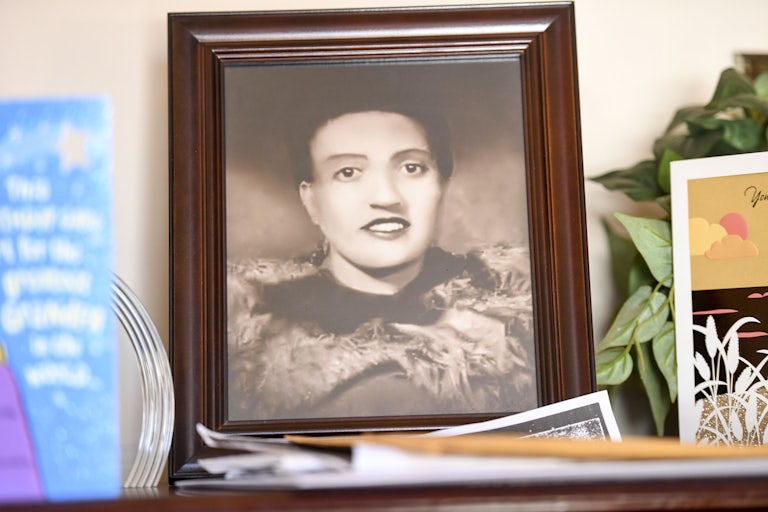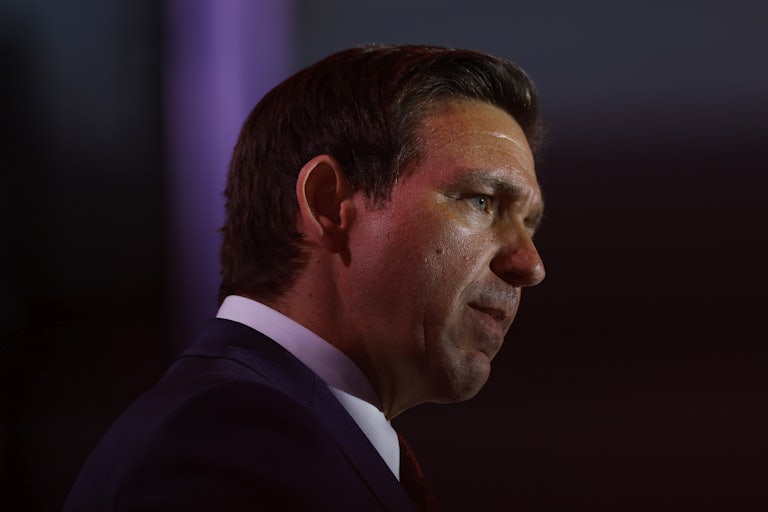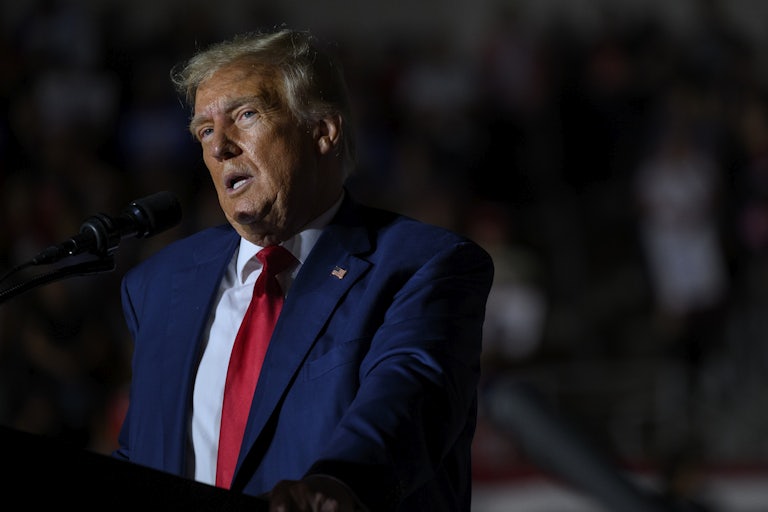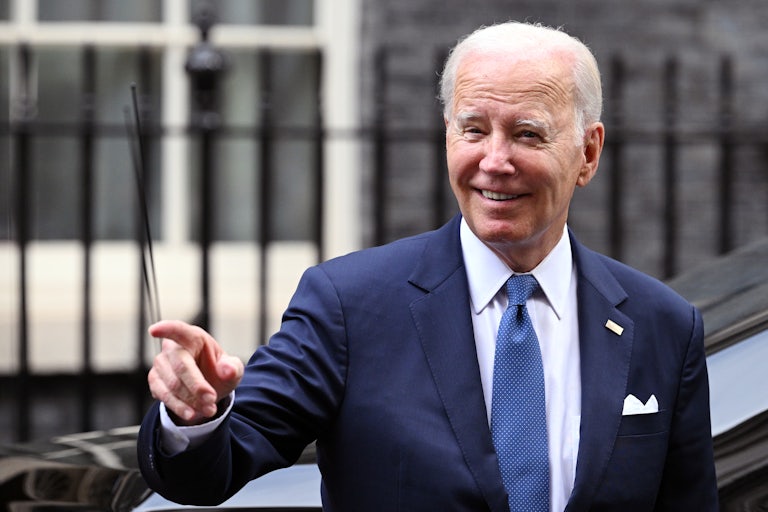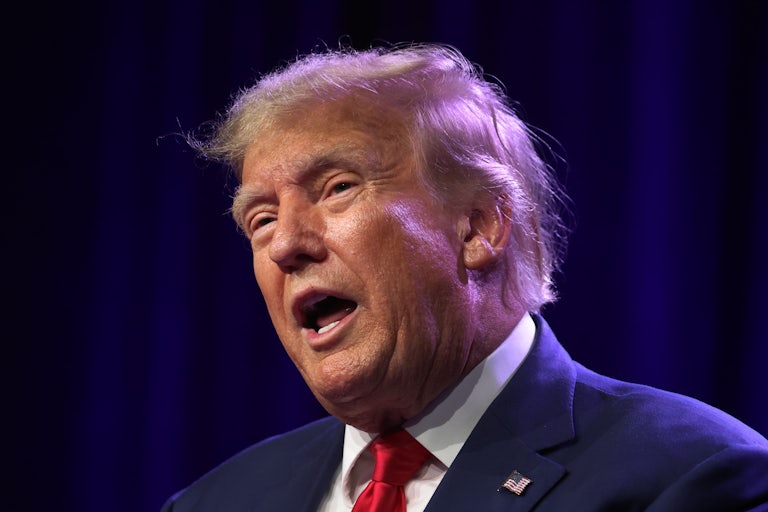Right-Wing Billionaires Are Funneling Money to Stop Ohio’s Abortion Ballot
Conservative donors far from Ohio are pulling all the stops to try to doom the abortion ballot.
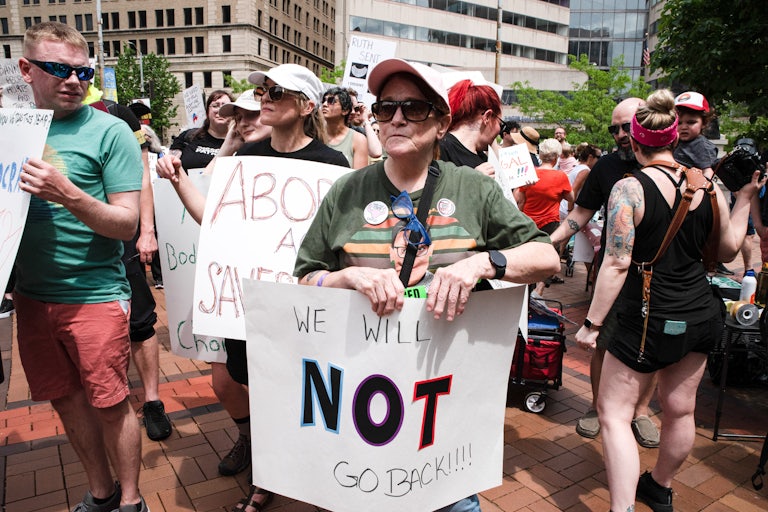
Right-wing donors across the country are pouring money into Ohio to try to influence a special August referendum and ultimately block enshrining abortion protections in the state constitution.
Abortion is currently legal in Ohio until about 22 weeks, although not for lack of GOP efforts after Roe v. Wade was overturned. Ohioans will vote in November on a constitutional amendment that would allow people to decide for themselves about all reproductive health. The state could only restrict abortion access after a doctor determines the fetus is viable, or could survive outside the uterus. And even then, abortions can be performed if the patient’s health or life is at risk.
Ohio currently requires only a simple majority of votes to amend the constitution. But Republicans have pulled out all the stops in trying to block the abortion amendment. So first, Ohioans will vote in August on a measure that would raise the threshold for constitutional amendments to a 60 percent vote.
The main “yes” campaign committee calling for the higher threshold, Protect Our Constitution, has raised a little more than $4.85 million, per a financial filing first reported in the Ohio Capital Journal.
Nearly all of that—$4 million—came from Richard Uihlein, a billionaire right-wing megadonor in Illinois. Other contributions have come from Georgia, Tennessee, and Washington, D.C. In total, only 14 percent of the money raised (less than $700,000) has come from within Ohio.
Three other “yes” groups have also raised millions of dollars primarily from far afield. One of those groups, Protect Women Ohio Action, is actually based in Virginia. Its primary donor is the Concord Fund, also known as the Judicial Crisis Network, a D.C.-based organization that backs conservative judges. Protect Women Ohio Action’s two other major donors are Susan B. Anthony Pro-Life America and the Catholic Church.
To be fair, it’s a similar picture on the opposing side, which has raised $14.8 million. Only about 16 percent of those funds came from Ohio donors, while the rest came from left-leaning philanthropic organizations and a Silicon Valley psychiatrist and philanthropist named Karla Jurvetson.
Still, it’s notable that right-wing donors outside of Ohio are so determined to stop people from changing their own constitution. If the “yes” groups prevail, they could block abortion protections in the fall. GOP lawmakers insist that raising the threshold is not about abortion, but Secretary of State Frank LaRose gave the game away in June, saying, “This is 100 percent about keeping a radical pro-abortion amendment out of our constitution.”
All of these right-wing efforts may still fail, because they completely ignore the will of the people. A USA Today Network/Suffolk University poll released in July found that only 26 percent of Ohio voters support increasing the amount of votes needed to amend the constitution, while 57 percent oppose it.
Another poll, released last week by the same organizations, found that 58 percent of Ohioans support the amendment to guarantee access to reproductive services, while just 32 percent oppose it. The support crosses party lines, with a third of Republicans backing the amendment, as well as 85 percent of independent women—a crucial voter demographic.
